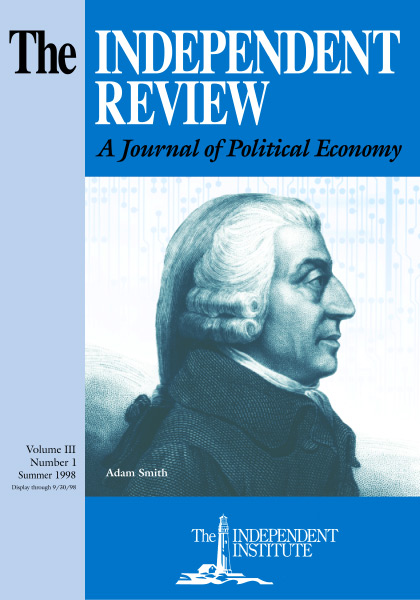The constitutional history of the American colonists and the Iroquois Confederacy sheds new light on the dynamics of group decision-making. It shows that the scope of government tends to grow as the requirements for consensus weaken, and that changes in rule-making procedures provoke people to adopt new strategies for pursuing their goals.
Randall G. Holcombe is a Senior Fellow at the Independent Institute, DeVoe Moore Professor of Economics at Florida State University, and author of the Independent book Liberty in Peril: Democracy and Power in American History.
American HistoryDemocracyEconomic History and DevelopmentEconomyLaw and LibertyPhilosophy and ReligionPublic Choice
| Other Independent Review articles by Randall G. Holcombe | ||
| Spring 2024 | Privatize the Public Sector: Murray Rothbard’s Stateless Libertarian Society | |
| Winter 2023/24 | Rethinking Economics as Social Theory | |
| Spring 2023 | Generation Gap: Why Baby Boomers Still Dominate American Politics and Culture | |
| [View All (24)] | ||










